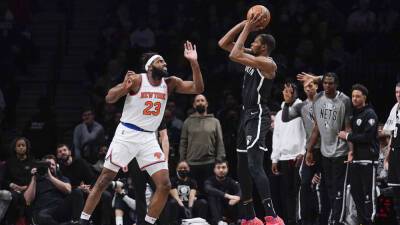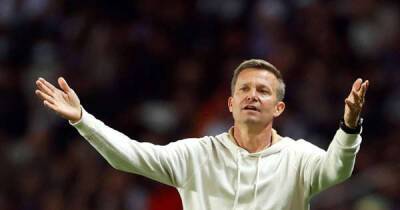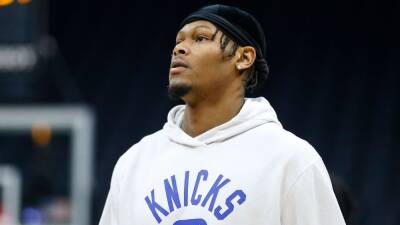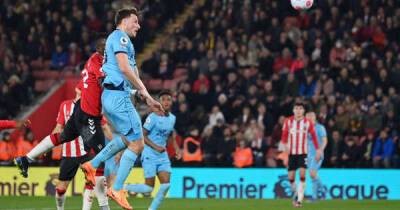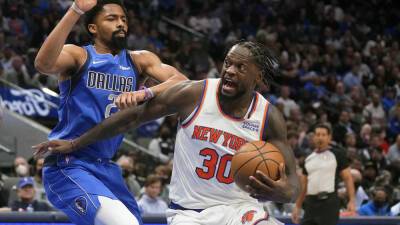New York Knicks' uncharacteristic flexibility is the only thing that can save their future
EXACTLY TWO YEARS ago, the New York Knicks officially hired Leon Rose as president of basketball operations.
Since then, Rose has had one in-person news conference — a gathering with a small group of reporters prior to the 2021-22 NBA season at the team's practice facility in Westchester, New York. Throughout that 40-minute chat, Rose identified three tenets that underpinned the Knicks' offseason moves:
Stability, continuity and flexibility.
The first two tenets were callbacks to the team's surprising success in the 2020-21 season. Julius Randle, coming off the best season of his career, signed a four-year, $117 million extension. Derrick Rose, the catalyst of New York's midseason turnaround after being acquired via trade, had been re-signed, as had Alec Burks, Nerlens Noel and Taj Gibson.
They, coupled with additions of Kemba Walker and Evan Fournier, were supposed to help the Knicks maintain the momentum created by finishing fourth in the Eastern Conference, Tom Thibodeau winning the NBA's Coach of the Year award and Most Improved Player Randle claiming All-Star and All-NBA honors for the first time.
But this season has been beset by instability, and the continuity once boasted by the franchise hasn't helped in the standings: Walker was benched, then hurt his knee, then was sent home. Derrick Rose has missed the majority of the season because of an ankle injury.
Randle, who has feuded with the fans and failed to repeat last season's success, has been the face of the harsh reality check hitting the Knicks (25-36), who match up against the Philadelphia 76ers (37-23) on Wednesday night (7:30 ET on ESPN).
Only one of Leon Rose's preseason pillars remains. And with no superstar to build around and no guaranteed path to



